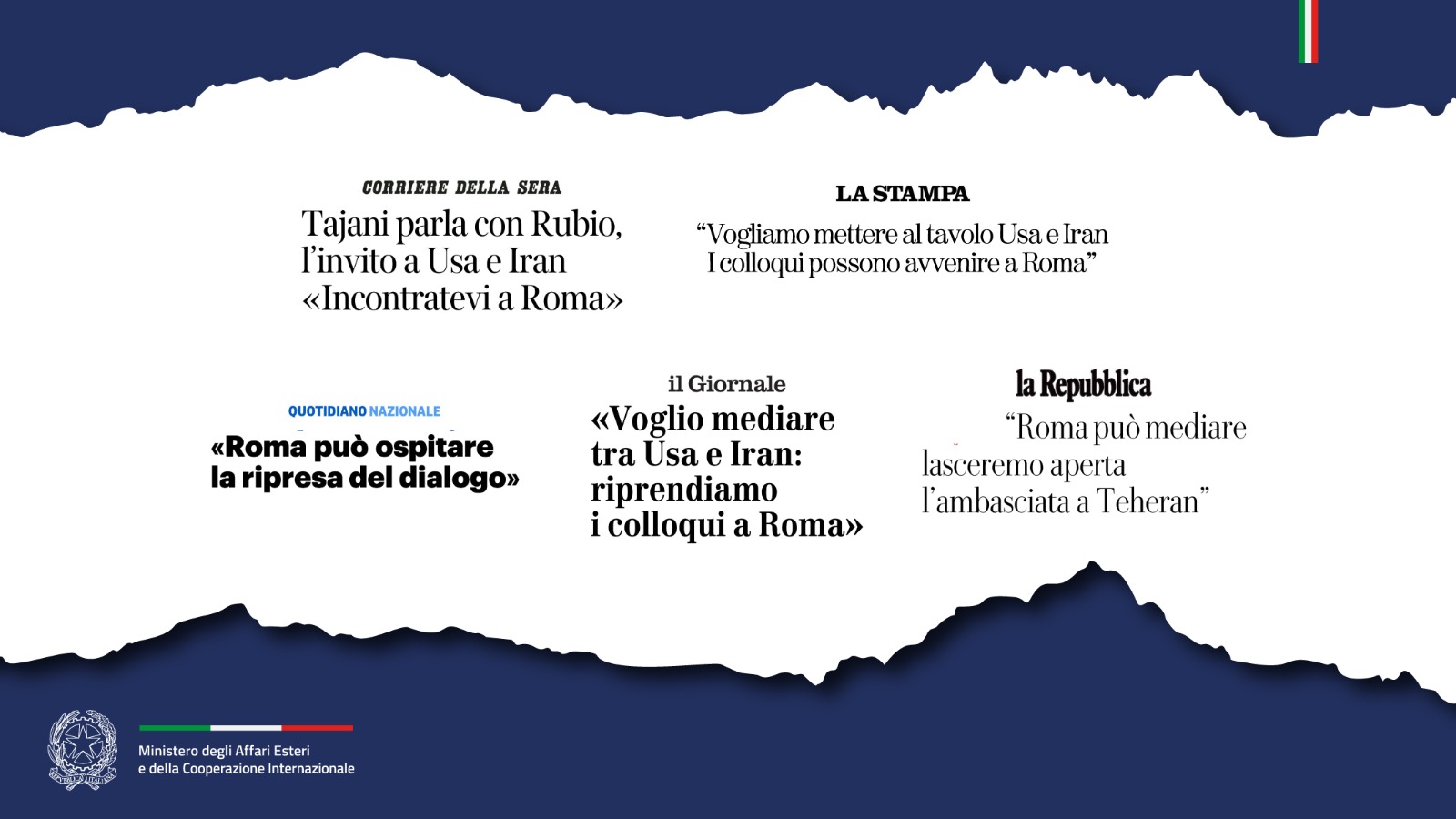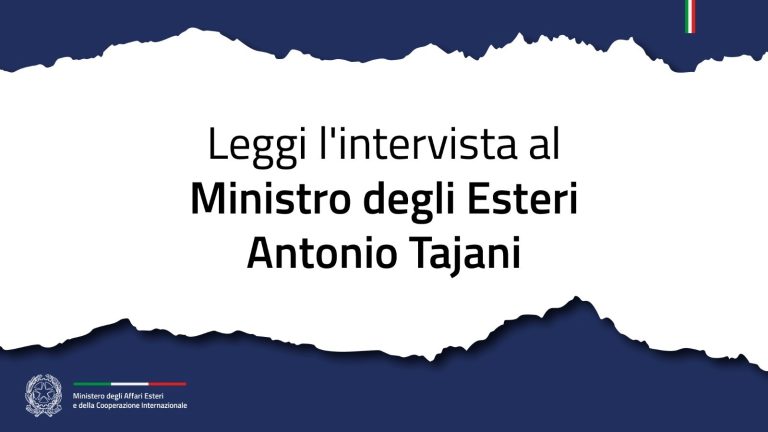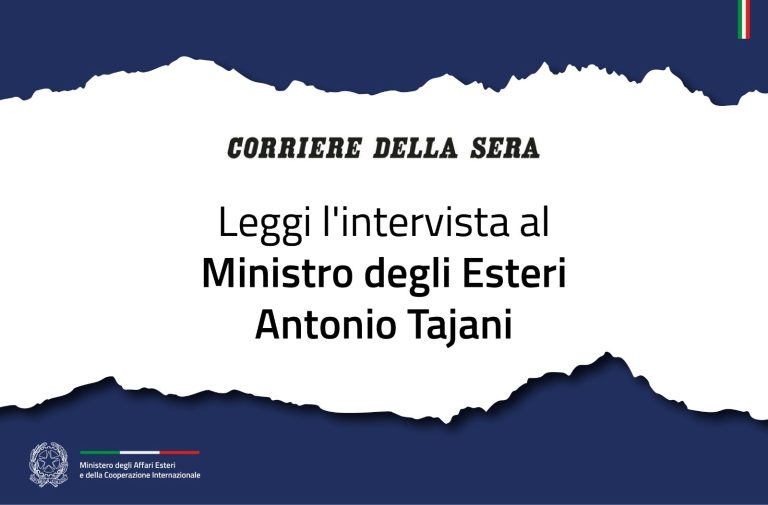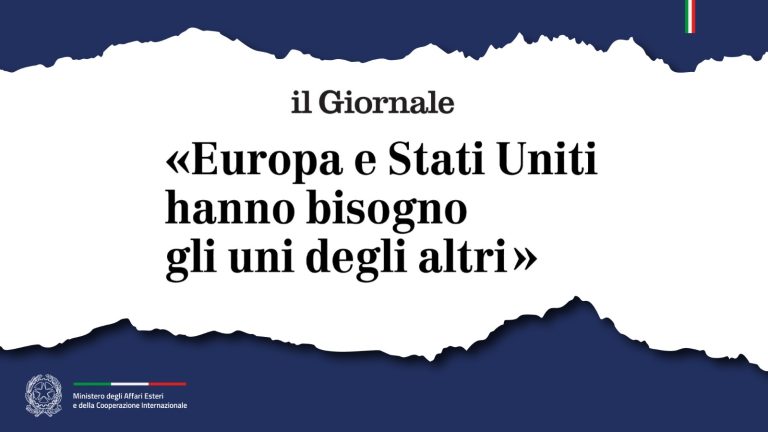«We are nominating Rome to host the desirable resumption of talks without intermediaries between the United States and Iran on the nuclear issue. I spoke with Secretary of State Marc Rubio and I contacted the Iranian Foreign Minister, Abbas Aragchi, who is in Russia. I expect to hear from him in the next few hours. Iran must not react rashly and must return to negotiations». It was one of Antonio Tajani’s longest Sundays when, in the late afternoon, he received us at the Foreign Ministry to take provisional stock of a chaotic and tense day and to try to reopen, for what Italy can do, a path for a possible dialogue that will stop the military escalation.
The Foreign Minister’s day began at night, when he was informed of the American attack: since then a flurry of telephone conversations, starting with the one with the Italian ambassador to Iran, Paola Amadei; meetings with Prime Minister Giorgia Meloni, with the other Ministers most involved in the Middle Eastern crisis emergency and with the Heads of intelligence services, as well as meetings with the Foreign Ministry’s Crisis Unit and other video meetings with our diplomats present in the area, but also with those in the United States, Russia and China.
The Minister confirmed that the Italian government had not been informed of the attack by the White House or the State Department. He said: “But we knew that an attack would happen”. After all, in three days’ messages, our ambassador to Tel Aviv, Luca Ferrari, had informed us of the imminence of the US intervention.
Minister Tajani underlined: “In meetings and discussions at all levels and with everyone we have tried to make an assessment of what is happening. But the emergency, the main thing at this time, is that of the Italians present in Iran and Israel”. The first convoys of compatriots have already left Iran and others are on their way. 122 Italians have entered Egypt from Israel, leaving for Italy on a charter flight to Verona.
Of course, bringing Italians to safety is a priority. But there is also much concern about the economic consequences of an escalation going as far as to block the Strait of Hormuz. « The damage would be first and foremost for Iran and then it would cause a series of reactions, including from China, because China uses that oil and, in any case, despite not having intervened with great determination in support of Iran, it has nevertheless lined up against the attacks on Iran. It would be a self-destructive attitude. We have obviously evaluated all options, even the most negative ones, and we are studying what we can do in that case”.
Indeed, Minister Tajani sees the existence of margins for the resumption of a US-Iran dialogue and also sees in the US attack “a sign of strength that President Trump wanted to give to Iran to force it to sit at the negotiating table: “I will destroy you where you produce the nuclear bomb and you come to the negotiating table to find an agreement”. However, he also said: “You and us are sitting at the negotiating table”, without intermediaries”. But, after all, the negotiation was already between the United States and Iran, and there is the possibility of taking action to resume it. The Minister insisted: “We are working to prevent an escalation. It is no coincidence that we left the embassy in Iran open, because we want to talk to Iranians, to push them not to attack the US bases”. US bases that are also in Italy under the NATO umbrella, but for which – as he assured – we have not been asked any authorization to use them for the mission in the Middle East.
Is there the risk – as Minister Guido Crosetto assumed- of a bigger crisis or can we hope for a return to diplomacy? Minister Tajani reiterated: “The hope is to convince Iran not to react rashly and to work for an agreement on nuclear power. This is what I said to Secretary of State Rubio. This is what I will tell the Iranian Foreign Minister when I hear from him over the next few hours. In this context, Rome can host the resumption of dialogue if there is one.” Unless, instead, there are other attacks. “The Americans say there will be no other attacks. I trust them, but I am certainly not a soothsayer.”
What is certain is that tomorrow (today, ed.) and Tuesday there will be two important international events to focus on the situation: the Council of EU Foreign Affairs Ministers and the NATO Summit. But it is equally certain at the moment that Europe has appeared and still appears weak and absent in the destiny of the world. Minister Tajani pointed out bitterly: “As long as individual States take action individually, they will never succeed in playing a significant role. The institutional structures need to be changed so that Europe can have weight, with a single foreign and defence policy”.





